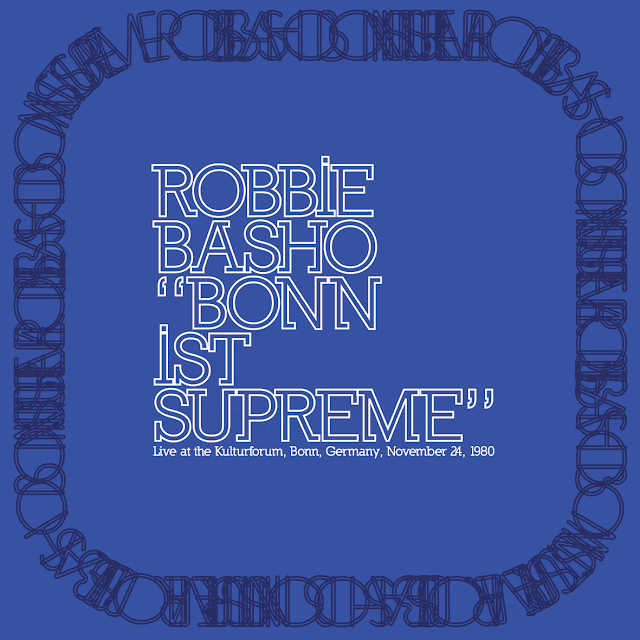
Hard to know where to begin with Robbie Băsho, as he did so much in his twenty years of making music before his life was cut short by a freak chiropractic accident. He went to military school, then pre-med. He painted, sang, played trumpet, played lacrosse, lifted weights, wrote poetry, and changed his name to Băsho after the Japanese poet. He went through phases of cultural and musical obsession, including Sufi, Buddhist, Hindu, Japanese, Indian classical, Iranian, Native American, English and Appalachian folk, Western blues, and Western classical “periods.” He “used open C and more exotic tunings and he developed an esoteric doctrine for 12- and 6-string guitar, concerned with color and mood. He spoke of ‘Zen-Buddhist-Cowboy songs’ a long time before Gram Parsons mentioned his vision of Cosmic American music.” He studied under Ali Akbar Khan. He pushed for a broader appreciation of the steel-string guitar as a classical concert instrument. He made 14 studio albums in 19 years. He wrote “a Sufi symphony” and another for piano and orchestra about Spanish and Christian cultures coming to America. He’s considered one of the geniuses of American folk and blues, and yet his name often gets lost in conversations about John Fahey, Leo Kottke, and Sandy Bull.
Although several of his studio recordings are among my favorite albums, I wanted to share this live recording because (unsurprisingly) there’s a specific rawness to it that I love. The master files have been lost, so this is a cleaned up version of a second generation tape, and it shows. Băsho lets himself pick up speed at the expense of precision, often bordering on sloppy, and he sings unabashedly in a voice that many have snickered about but that gives me chills. It’s terribly intimate, and the audience is all but inaudible excepting polite bits of applause. You hear Băsho talk a bit about his guitar tunings, about his 115 year old instrument, and banter a little in bad German. More importantly, Bonn Ist Supreme gives an overview of his dizzying range, incorporating his signature guitar raga style, American spirituals, a reworking of Debussy, blues, themes from Wagner’s Parsifal, and Celtic folk melodies. Sprawling and trancelike.
Can't wait to hear this.
Immense, thank you!